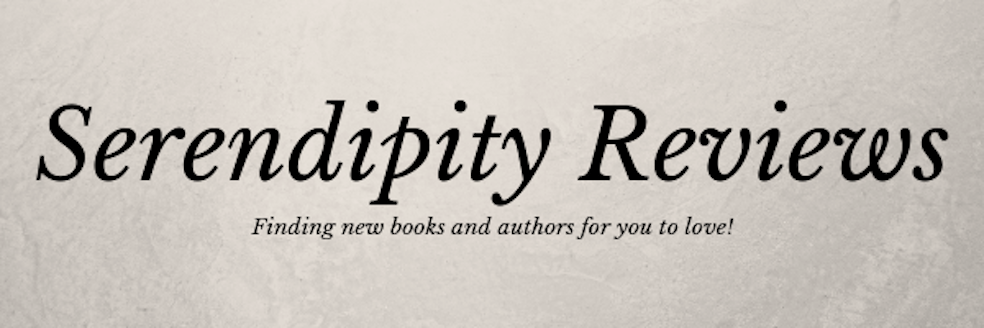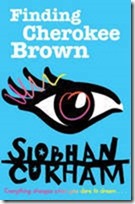Today on the blog, I am pleased to welcome Siobhan Curham to talk about her writing as part of the blog tour for Finding Cherokee Brown.
1) Your new book Finding Cherokee Brown is about to be published on the 4th March. How do you plan to spend publication day?
This is going to sound really boring, but I’m actually going to be working on publication day! I work in London three days a week as an editorial consultant. But I’m sure there will be cake involved at some stage. In a couple of weeks I’m having a slightly late launch party at The Poetry Café in Covent Garden. I really want to celebrate with the friends and family and other writers who were so supportive of me through the writing of the book.
2) Can you tell my readers a little bit about Finding Cherokee Brown?
Finding Cherokee Brown is the story of a teenage girl who decides to write a book about her life in the hope that it will force her to become more like the feisty literary heroines she loves to read about – and in doing so, help her stand up to her bullies. She does this with the help of an archaic (fictional) writing guide called, So You Want to Write a Novel by a pompous elderly writer called Agatha Dashwood. Each chapter begins with a writing tip from Dashwood and we follow Cherokee’s progress as she follows these tips and starts to transform her life. I wanted to write a book about bullying that focused on a victim fighting back and was hopefully an inspiring and uplifting read.
3) Do you find that the writing gets easier or harder with each book you publish?
In one way it gets easier. My first novel, Sweet FA, was a real stop start affair as I was learning my craft as I went along. Now, eight books later, I find that certain things have almost become second nature but, because I like to challenge myself and try something a bit new each time – such as writing a book solely in emails with my previous novel, Dear Dylan – every project has its own unique problems!
4) What came first, the character, the plot or the idea?
With Finding Cherokee Brown, it was definitely the character. A few years ago I worked on a writing magazine and, one month, a teenage girl wrote in complaining that there weren’t nearly enough feisty heroines in YA fiction. I cut her letter out and used it as a challenge. I wanted to create the kind of character she wanted to read about. As a tribute, I named the character Cherokee after her. Just last week, I managed to track the girl down through the magazine to let her know that a book she had inadvertently inspired was about to be published. It was a really magical moment. Now I’m just keeping everything crossed that she’ll like it!
5)What was your one line synopsis for the book when you presented the idea to your agent?
I didn’t actually have an agent when I wrote Cherokee – or a publisher – and I’m really glad I didn’t, because it gave me the freedom to experiment with the structure and not have to play it safe. When I did finish it I showed it to a very well known literary agent and she rejected it, saying that she wasn’t sure the idea of a young person writing a novel about their life was strong enough. Then Dear Dylan won a national award and I got to present Finding Cherokee Brown to various publishers. They all loved it, and I ended up getting publishing deals in three different countries. Agent, schmagent – haha!
6)Do you plot out each book before you write it or do you let the story unfold as you go along?
I like to have a rough idea of where I’m going so I always have an ending and certain key scenes in mind. But I’ve learnt not to stick too rigidly to this. There comes a point in a book when the characters become fully formed and start dictating the plot. I think it’s great when this happens as it makes for a more believable storyline and it’s important to go with the flow.
7)Do you have a daily word count that you aim for when writing your first draft?
No, I measure it more in time spent at my desk. When I’m deeply into a novel, or nearing a deadline, I’ll try and spend a full working day on it. At other times I like to do at least two hours – any less and it doesn’t feel worthwhile.
8) Do you edit your first draft as you write it or wait until you have finished it?
I always start my writing day editing what I’ve done the day before. This really helps me get back into the story, and it means that when I’ve completed the first draft it’s not too rough. What I don’t do, and what I always tell people in my writing workshops not to do, is edit as I go along. That way madness lies! Editing and writing use two completely different sides of the brain. Trying to edit while you create is like trying to drive a car with the handbrake on. Don’t do it!
9) If you could be any other writer in history, who would you like to be?
Roald Dahl. The thought of bringing so much joy to so many children and creating such memorable characters is incredible.
10) Did you attend any writing courses before you were published?
I enrolled on one of those correspondence courses you see advertised in the back of magazines that say things like: ‘earn £2 billion from home as a freelance writer!’ I spent a few months sending off my assignments to a faceless tutor called Donald McDougall and when it was over I got sent a ‘press pass’. It looked like it had been laminated in someone’s garage! It was then that I realised I ought to just bite the bullet and start sending my work out to publications.
11) Do you have any advice for aspiring and unpublished authors?
Well, apart from the don’t edit while you write thing, I would say, write from your heart, about things you feel passionately about. Not only will this make your writing come alive, but it will also give you the incentive to keep coming back to the page, day after day and week after week. And, when it comes to novels, write what you want to write, not what you think publishers or agents want. People are always on the lookout for something exciting and fresh – so believe in your own uniqueness.
Finding Cherokee Brown by Siobhan Curham will be published today (4th March) by Electric Monkey, an imprint from Egmont.
To find out more about Siobhan:




Ooh, I read Finding Cherokee Brown over the weekend and ADORED it!
ReplyDeleteI am so pleased to hear you loved it. It is next on my list.
DeleteI finished Finding Cherokee Brown the other night and loved it! I bet the girl who inspired it with her letter is so pleased!
ReplyDeleteI bet she did. This is next on my list to read.
Delete